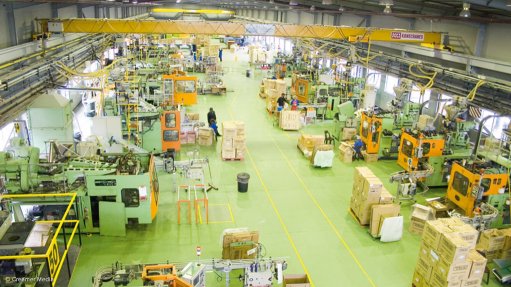
ASTRAPAK
The group highlighted that executive strategic interventions and other group-wide business improvement imperatives were progressing favourably
Photo by: Duane Daws
The “seriously disruptive” electricity outages in South Africa have cost packaging group Astrapak more than R2-million in “irrecoverable downtime costs”, the company said last week, adding that the power cuts were negating some of the benefits of energy saving initiatives.
In an operational update to shareholders on the period September 1 to December 31, 2014, Astrapak also highlighted that executive strategic interventions and other groupwide business improvement imperatives were progressing favourably, with the group applying “rigorous effort” to identify underperformance and areas of noncompliance that would inevitably result in additional costs.
“Only four businesses are now responsible for a major shortfall against budget. The remaining group businesses, in aggregate, are beginning to perform in line with management expectations for this phase of the recovery process.
“However, there remains a journey to travel before we meet our optimal return aspirations within five years, as set out in our original recovery plan,” the company outlined.
Astrapak stated that it was pleased with the positive effect of increased investments in shared and support services within the new structure and all other overheads were well contained, assisted by right-sizing measures.
The group further noted that it was well positioned with key customers in particular focus areas and that it had continued to achieve selling price recoveries and real volume growth. Executive management was also actively investing time and resources in support of key clients.
Meanwhile, the group reported that cash inflows for the period under review and year-to-date were healthy and that cash was being conserved through rigorous attention to detail in working capital management. Net working capital days were better than the internal benchmark of 40 days.
The net debt and the debt-to-equity ratio continued to reduce during the period from the R325.8-million and 29.6% reported as at August 31, 2014. Interest paid was also reflecting a concomitant improvement.
The sharp decline in dollar-based global energy prices had also begun to impact polymer market dynamics and, especially, the price of virgin resin.
During the period under review, there had been no impact on Astrapak, but if the trend persisted, it could result in a reduced cost of materials for the group, depending on the rand:dollar exchange rate.
The operational update revealed that any benefit would be passed on to customers as determined by market-relevant factors and in line with contractual price adjustment mechanisms.
“On a through-the-cycle basis, fluctuations in raw material pricing are broadly neutral for the company but, in the short term, there will be a slightly depressive effect on margins as stock manufactured at earlier input prices is delivered to customers.